Qantas and Virgin domestic on-time performance hits near record low with delays and cancellations
The nation’s major airlines are on track to record one of their worst on-time performances on record after more than half of all domestic flights last week were delayed or cancelled.
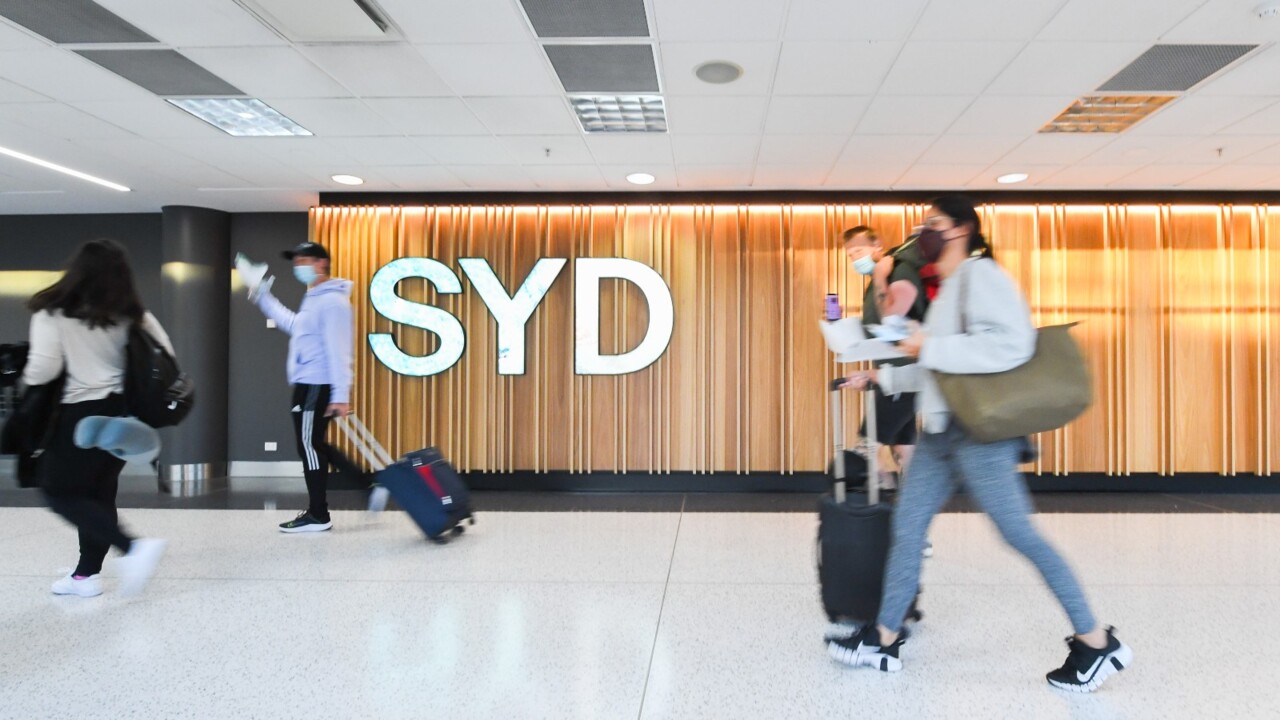
The nation’s major airlines are on track to record one of their worst on-time performances on record after more than half of all domestic flights last week were delayed or cancelled.
From Monday to Sunday, Qantas cancelled 6.7 per cent of domestic flights and had an on-time performance of 44 per cent, while Virgin Australia cancelled 14.7 per cent of flights and had an on-time performance of 43 per cent, according to figures privately compiled by the airlines.
The growing delays – during a busy holiday period and with both Qantas chief executive Alan Joyce and Virgin managing director Jayne Hrdlicka in Europe – have been compounded by illness not only among airline staff, but also air traffic control.
Airservices Australia confirmed on Monday that 10 per cent of the air traffic control team was absent in the past week, but did not say where the shortages were most acute.
Wild weather has also exacerbated delays, with Sydney Airport operating only one of three runways on Friday and fog slowing arrivals into Melbourne.
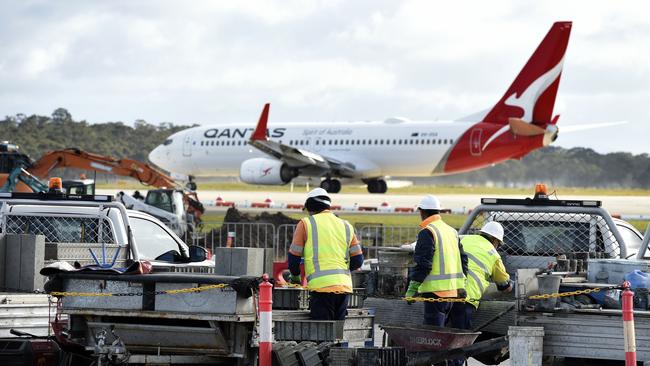
Official on-time performance figures are not due until late July. Bureau of Infrastructure Transport Research Economics data for May showed an average on-time performance for Qantas of 60.7 per cent, and a cancellation rate of 7.1 per cent. Virgin had an on-time rate of 65.7 per cent and a cancellation rate of 5 per cent.
Transport Minister Catherine King told The Australian there was a “real staffing crisis” in aviation.
“The approach of the previous government and some companies hasn’t helped the sector, with outsourcing of labour and the denial of JobKeeper to some workers setting the scene for a third of the workforce leaving the industry,” Ms King said.
“We’re seeing the consequences of those decisions play out in delays and disruption across the country. Nobody likes seeing flights cancelled or delayed.
“The government will keep working with industry and unions to rebuild the aviation workforce, but the truth is that replacing the experience and expertise that has been lost can’t be done overnight.”
During the Covid-19 pandemic, Qantas cut 9400 jobs and Virgin – which fell into bankruptcy – cut 3000 jobs. Both airlines have been racing to restaff as demand for travel has rebounded. Qantas has recruited 1000 people since Easter.
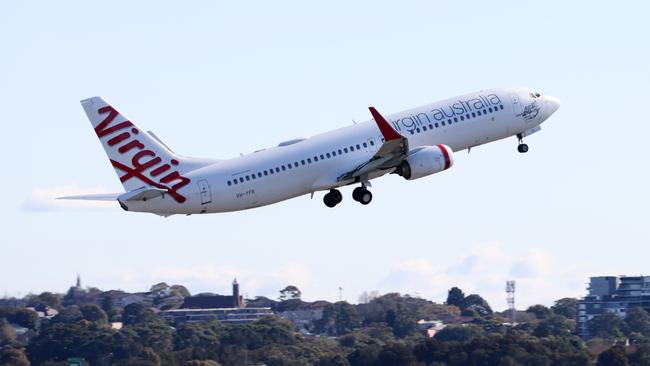
Virgin last week announced it would reduce its scheduled flights in an attempt to curb the stress caused to passengers from staff shortages.
“Sometimes short-term unforeseen adjustments to the schedule are necessary, but lead to some disruption, and we sincerely apologise to guests impacted by these events,” a Virgin spokeswoman said.
Qantas has also reduced its domestic capacity by 15 per cent through to September, citing high fuel prices and to assist with “resourcing challenges”.
“We appreciate how frustrating flight cancellations and delays are for customers with severe weather in NSW and a spike in Covid cases for operating crew impacting airline schedules over the past week,” a Qantas spokesman said on Monday.
“We had additional crew on standby and used larger aircraft on some flights, which allowed us to better respond to these issues and get 85 per cent of our domestic flights to depart within an hour of schedule.”
But the crisis in the aviation industry is global. Last week, easyJet chief operating officer Peter Bellew resigned after the British low-cost airline cancelled thousands of peak season flights due to severe staff shortages.
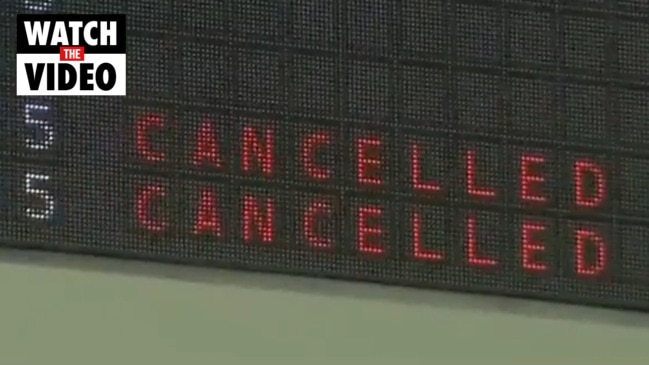
British Airways will also cut 10,000 flights from August to October as it struggled to find staff, and has asked passengers to drop their bags the day before travel.
After a near shutdown of aviation for two years due to the pandemic and associated border closures, most airlines are now struggling to serve the volumes of people wanting to fly, despite often charging record high fares.
It means that even as passenger stress levels rise and brand reputations slide, airlines are now swinging dramatically to profit.
In a note to investors earlier this month, JPMorgan analysts said Qantas was its top pick among infrastructure and transport companies.
JPMorgan pointed to the strong domestic recovery and said that even though higher fuel and labour costs had led the airline to reduce capacity, this would be offset through higher fares.
“Consistent with global aviation market trends, we believe demand destruction from higher ticket prices will be limited given pent-up demand levels even in the midst of inflation and cost-of-living concerns,” the bank’s analyst, Anthony Longo, said in a note. “Given the capacity adjustments and robust travel demand, we see a positive backdrop for … airline yields as a result.”
One of Qantas’s biggest shareholders reiterated this view, saying the airline was doing well given the chronic staff shortages.
“It’s a tough environment for airlines and at least Qantas is able to price for it,” the investor, speaking on condition of anonymity, said.
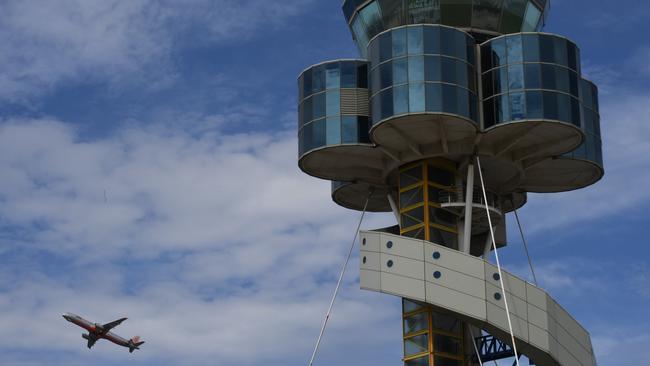
However, the Australian Competition & Consumer Commission says it is monitoring the situation.
“The ACCC is aware of many consumers experiencing issues with flight cancellations,” a spokeswoman said.
“The ACCC expects airlines to be honest and proactive in advising consumers of the reasons why a flight is delayed or cancelled, and whether they are entitled to compensation under the terms of their policy.”
Sydney Airport confirmed that cancellations and delays were currently an issue on Monday as passenger numbers remain high for the last week of the NSW school holidays.
The airport has forecast that 2.1 million people will pass through its domestic and international terminals during the school holiday period from June 27 to July 17. That is busier than the Easter school holiday period from April 4-24, when 1.8 million people used the airport.
Airservices Australia said it was being affected by “an aviation-wide issue”.
It said: “Where we can, we replace an absence with off-duty staff in the first instance. However, failing that we will reduce the capacity of aircraft in an area, to ensure safety is maintained at all times.”






To join the conversation, please log in. Don't have an account? Register
Join the conversation, you are commenting as Logout